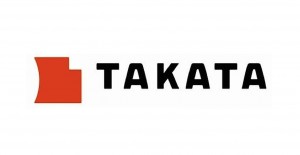What is already the largest safety recall in automotive history continues to get bigger, Takata announcing it will recall another 14 million airbags that could be prone to inflate improperly in a crash, a potentially life-threatening problem.
The move is actually the first in what will likely be a series of new recalls by the embattled Japanese supplier, Takata previously indicating it will ultimately add as many as 40 million inflators to the list. Prior to a May 4 agreement with the National Highway Traffic Safety Administration, 28.5 million airbag inflators had already been targeted.
The precise number of vehicles that will be impacted by the new series of recalls has yet to be determined, as some models use several of the defective airbag systems. But earlier recalls had targeted about 24 million cars, trucks and crossovers sold in the U.S.
The problem is that Takata airbag inflators may unexpectedly misfire when triggered by a crash, sending plastic and metal shrapnel spewing into the passenger compartment. So far, 13 deaths have been linked to the defect, including 10 in the U.S., along with more than 100 injuries.
Most of the malfunctions have occurred in Honda vehicles, a situation that has taken a serious impact on the third-largest Japanese automaker’s bottom line. Earnings dropped during the January-March quarter due to the extensive recall.
(Honda earnings slammed by Takata trouble. Click Herefor the latest.)
Even though Takata is only officially increasing its own list by 14 million inflators, Honda last week said it was recalling 21 million more. A total 14 automakers have so far been impacted by the Takata problems, a list that is growing with the latest series of recalls. New to the list are Jaguar Land Rover, Tesla Motors and Fisker Automotive.
According to the airbag supplier, there have been no reports of failures involving the inflators covered by the latest recall, but it said it agreed to make the move “out of an abundance of caution.”
Takata has come under intense pressure from regulators and safety advocates and, since being slammed during a series of Congressional hearings last year, has reversed its earlier opposition to expanding the airbag inflator recall.
The supplier also is hoping to head off additional fines by NHTSA with which it reached a settlement last year that, among other things, called for improved safety efforts.
(Click Here for details about Secretary of Transportation Foxx’s position of safety before profits for auto industry.)
Takata will phase in the latest recall through a series of tranches – this week’s being just the first – through 2019. The extended process reflects the sense that newer airbag inflators are less vulnerable to the problems seen on older vehicles.
Initially, it appeared the issue was largely related to vehicles operating in high-humidity climates. But a recent study funded by a consortium of automakers indicated that there is a more fundamental problem with the explosive ammonium nitrate used to power Takata airbag inflators. Over time, it can break down, even in drier climates.
Another reason for the slow rollout of the new recall is the challenge of coming up with replacement parts.
According to Takata, “that remedy parts are not currently available for many of the vehicles containing inflators.”
(For more on the latest U.S. Takata fatal crash, Click Here.)
Only about a third of the 24 million vehicles covered by the original Takata recall have yet been repaired, and that shortage has caught much of the blame.


